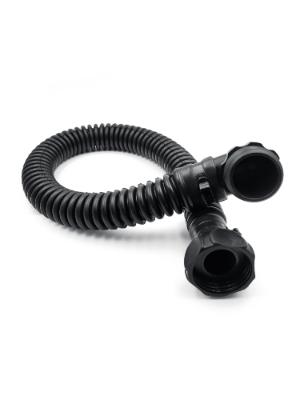Top Things to Check Before Buying a CBRN Gas Mask Filter
As we continue living in uncertain times, it has become important to protect ourselves with regard to chemical, biological, radiological, and nuclear (CBRN) threats. Whether you are a first responder, military personnel, prepper, or merely someone concerned for safety in emergencies, possessing the proper gas mask and a filter can go a long way in protecting your health and potentially saving your life. A CBRN gas mask can only be as efficient as its filter. The filter is the barrier between you and harmful and desperate airborne agents.
That said, not every CBRN filter is equal. Choosing the wrong filter, depending on how you use it, could possibly compromise your safety, compromise your mask’s efficiency, or possibly expose you to hazards you were intending not to. This will further compound the issue, especially considering the number of filters available on the market. Overall, it is paramount to understand what to consider before you purchase a CBRN Gas Mask Filter. Knowing the filter's shelf-life, stated compatibility, certified standards, and several other significant factors will dictate whether or not a filter can genuinely provide safe breathing while in hazardous environments.

Certification and Standards
The first and foremost concern is that the filter meets accepted CBRN standards. Look for filters that are certified to third-party standards, preferably certified to international standards, typically from organizations like NIOSH (National Institute for Occupational Safety and Health) or NATO CBRN standards.
Certification shows that the filter was rigorously tested against chemical, biological, radiological, and nuclear agents and can be trusted to provide reliable protection. Do not use or rely on filters that do not have reliable certification; they do not provide adequate protection in a real-world situation.
Shelf Life
Shelf life is important when considering the CBRN Gas Mask Filter. Unused filters can deteriorate over time just by being subjected to heat, moisture, or other environmental conditions. Most quality filters will have a shelf life of 5-20 years. Filters with longer shelf lives are preferable, particularly if you want to have a backup source for longer periods of time. Always check the expiration date on filters you are looking to purchase, and store your filters in a manner recommended by the manufacturer.
Compatibility with Your Gas Mask
A filter can only work as intended if it fits your mask properly. Be sure to check the connection mechanism and whether the filter will fit your gas mask. Some filters have threaded connections, while some have a bayonet design or even a proprietary fitting. If you use a filter that does not fit your gas mask correctly, it may leak or not seal properly and put you at risk. Just check compatibility to be safe before you buy one.
Types of Protection
CBRN filters are different for the types of threats you are protected against. Some filters offer full CBRN protection, and others may only protect against chemicals or particulates. Truly consider what you need and your situation. If you are purchasing a filter for general preparedness, a filter that protects you from all CBRN hazards is safest. Just be sure that the filter specifications indicate clearly what type of agents it can defend you against.
Filter Capacity and Duration
The filter capacity and expected duration of use are two important considerations. High-quality military gas mask sale should provide long-lasting protection; they typically have a rating of hours of continuous use under specified scenarios. Check the manufacturer's specifications for particulate and chemical absorption capacity. If filters have higher capacity ratings, they will provide longer periods of protection, which can be significant in prolonged laxative scenarios.

Contaminants Resistant
The filters should be resistant to contamination by a variety of contaminants such as dust, smoke, chemical vapors, and biological agents. Filters designed to counter several contaminants concurrently should be sought. Multi-layered filtration devices that combine activated carbon layers and a HEPA-type particulate filter system provide the best defense. Multi-layer systems ensure protection from a barrage of potential hazards or in a mixed-hazards environment.
Weight and Portability
While functionality is the most important consideration, the filter's weight and size do matter, especially if you are going to be wearing the filter for long periods. Heavier filters can cause discomfort, neck strain, or fatigue. Look for lighter-weight, compact filters that do not compromise protection. Portability is especially relevant for a variety of situations where speed is critical for your survival, such as for first responders, military personnel, and preppers.
Ease of Replacement
Once filters are used, they have a limited lifespan. Make sure to check if the filter is easy to replace and that replacement parts are available. Some filter models are designed so you can easily and quickly replace filters without even having to take the mask off your face. This is very beneficial in situations of high stress or other hazardous conditions where time is of the essence.
Bottom Line
Choosing the right CBRN gas mask filter is a critical step in ensuring your safety in hazardous environments. From certification and shelf life to compatibility, protection type, and ease of replacement, every factor matters when selecting a filter. Taking the time to evaluate these 10 aspects will help you make an informed decision and avoid potentially life-threatening mistakes.
For reliable and long-lasting protection, consider investing in a high-quality CBRN filter with a 20-year shelf life. Products like the CBRN Filter With 20 Years of Shelf Life by Supergum.shop offer proven performance, extended usability, and peace of mind, making them an excellent choice for anyone serious about personal safety.


